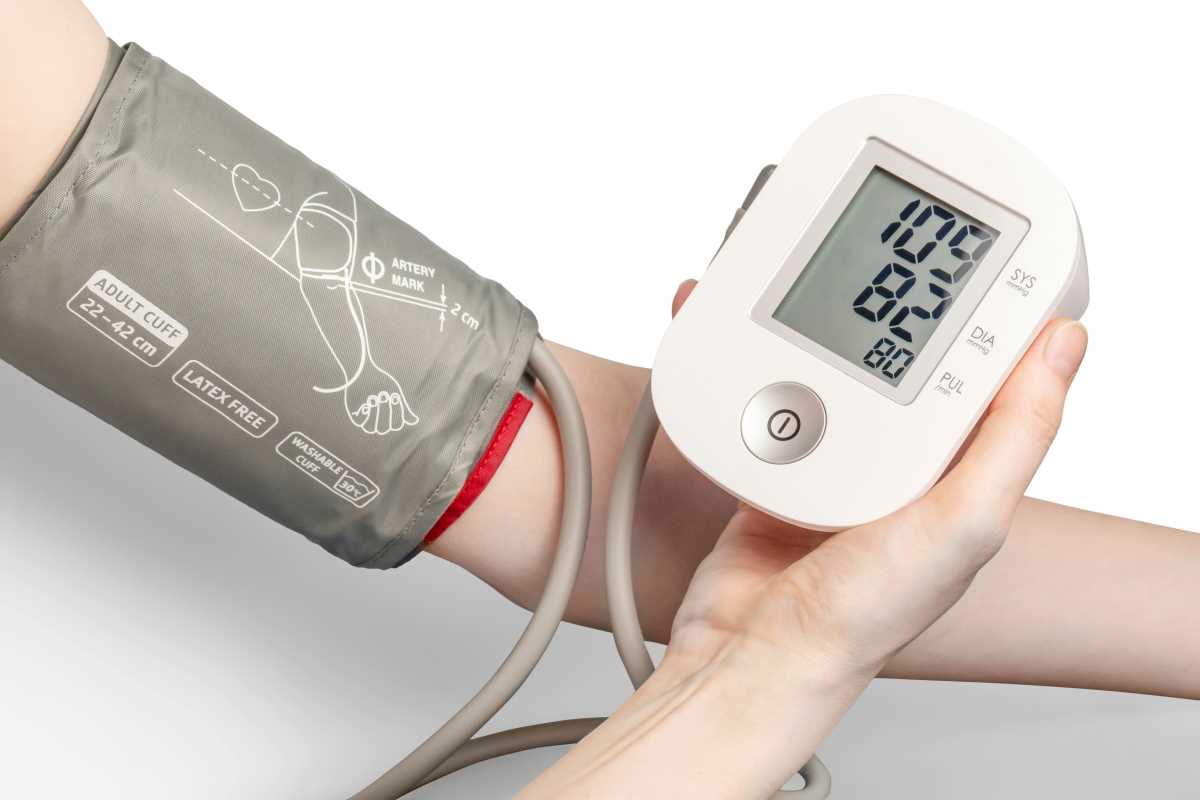Managing blood pressure can feel like a delicate balancing act, especially when you're navigating your 40s and 50s. You've been faithfully taking your medication, monitoring your numbers, and trying to make healthy lifestyle choices. But what happens when your current blood pressure medication stops working as well as it used to, or when those side effects start interfering with your daily life?
The truth is, blood pressure medications aren't always a permanent solution. Your body changes over time, your health circumstances evolve, and sometimes what worked perfectly five years ago might need adjusting today. Understanding when and why you might need to switch medications empowers you to work more effectively with your healthcare provider to find the best approach for your unique situation.
Let's explore the key indicators that suggest it might be time to reassess your blood pressure medication, along with practical guidance on navigating this important health decision with confidence.
Recognizing the Warning Signs
Persistent High Blood Pressure Readings
The most obvious indicator that your medication might need adjustment is when your blood pressure remains consistently elevated despite taking your medication as prescribed. If you're monitoring at home and seeing readings above your target range for several weeks, it's time to have a conversation with your healthcare provider.
Keep in mind that blood pressure can fluctuate throughout the day and respond to stress, activity levels, and even the weather. Consistently high readings over time, particularly if they're trending upward, suggest your current medication regimen may no longer be sufficient.
Bothersome Side Effects
All blood pressure medications come with potential side effects, but that doesn't mean you have to accept ones that significantly impact your quality of life. Common side effects that might prompt a medication change include persistent cough, dizziness, fatigue, swollen ankles, or sexual dysfunction.
The key is distinguishing between temporary adjustment symptoms that typically resolve within a few weeks and ongoing issues that interfere with your daily activities. If side effects are preventing you from exercising, working effectively, or enjoying time with family, discuss alternatives with your healthcare provider.
Changes in Your Overall Health
Your blood pressure medication needs may shift when other health conditions develop. For instance, if you're diagnosed with diabetes, kidney disease, or heart problems, your healthcare provider might recommend different medications that provide additional protective benefits for these conditions.
Similarly, if you develop new conditions that require medications with potential interactions, switching your blood pressure medication might be necessary to avoid complications.
Life Stage Considerations
As you progress through middle age, your body processes medications differently. What worked well in your 40s might be too strong or not strong enough in your 60s. Age-related changes in kidney function, metabolism, and cardiovascular health can all influence how effectively your blood pressure medication works.
Understanding Your Medication Options
Blood pressure medications work through different mechanisms, and understanding these differences can help you have more informed discussions with your healthcare provider about potential alternatives.
ACE Inhibitors: The Artery Relaxers
ACE inhibitors, such as lisinopril and enalapril, work by blocking an enzyme that causes blood vessels to narrow. They're particularly beneficial if you have diabetes or heart failure, as they provide additional protection for your kidneys and heart. The most common side effect is a dry, persistent cough that affects about 10-15% of people taking these medications.
ARBs: The Gentler Alternative
Angiotensin Receptor Blockers (ARBs) like losartan and valsartan provide similar benefits to ACE inhibitors but rarely cause the troublesome cough. They're often considered when someone can't tolerate ACE inhibitors but would benefit from similar cardiovascular protection.
Beta-Blockers: The Heart Rate Controllers
Beta-blockers such as metoprolol and atenolol slow your heart rate and reduce the force of your heart's contractions. They're especially useful if you have a history of heart attack, heart failure, or certain heart rhythm problems. Unfortunately, they can sometimes cause fatigue or make it harder to exercise at your usual intensity.
Diuretics: The Fluid Managers
Often called "water pills," diuretics like hydrochlorothiazide help your kidneys remove excess sodium and water from your body. They're frequently used as first-line treatments and work well in combination with other blood pressure medications. The main side effects include increased urination and potential electrolyte imbalances.
Calcium Channel Blockers: The Vessel Openers
These medications, including amlodipine and diltiazem, prevent calcium from entering the muscle cells of your heart and blood vessels, causing them to relax. They're particularly effective for older adults and people with certain types of high blood pressure. Some people experience swelling in their ankles or feet as a side effect.
Timing Your Medication Evaluation
Several life circumstances might prompt a medication review, even if you're not experiencing obvious problems with your current prescription.
Annual Physical Exams
Your yearly checkup is an ideal time to review your blood pressure medication effectiveness. Come prepared with your home blood pressure readings from the past few months, and discuss any changes in how you're feeling or functioning.
Major Life Changes
Significant stress, lifestyle changes, or major life events can affect how well your blood pressure medication works. Starting a new job, caring for aging parents, or dealing with family health issues can all impact your cardiovascular health and medication needs.
Weight Changes
Significant weight loss or gain can affect how your body processes blood pressure medication. If you've lost 20 pounds through lifestyle changes, your medication dose might need adjustment. Conversely, weight gain might require a different approach to maintain optimal blood pressure control.
Preparing for the Conversation with Your Healthcare Provider
Having a productive discussion about potentially switching your blood pressure medication requires some preparation. Here's how to make the most of your appointment.
Document Your Concerns
Keep a detailed log of your blood pressure readings, noting the time of day and any circumstances that might affect the readings. Also track any symptoms or side effects you're experiencing, including when they occur and how they impact your daily life.
Compile Your Medical History
Gather information about any new health conditions, medications, or supplements you're taking. Even over-the-counter medications and herbal supplements can interact with blood pressure medications or affect your cardiovascular health.
Prepare Your Questions
Come to your appointment with specific questions that will help you understand your options:
- What are my current blood pressure targets, and am I meeting them?
- Are there alternative medications that might work better for my situation?
- What are the potential benefits and risks of switching medications?
- How long should we try a new medication before evaluating its effectiveness?
- Are there lifestyle modifications that might reduce my medication needs?
Be Honest About Your Concerns
Don't hesitate to discuss cost concerns, medication complexity, or quality-of-life issues. If you're struggling to remember multiple daily doses, mention this. If the cost of your current medication is causing financial stress, bring it up. Your healthcare provider can only help find the best solution if they understand your complete situation.
Working Together on the Transition
Switching blood pressure medications isn't always a simple substitution. Your healthcare provider might recommend a gradual transition, starting the new medication while slowly reducing the old one. This approach helps prevent rebound high blood pressure and allows your body to adjust gradually.
Monitoring During the Switch
Expect more frequent blood pressure monitoring during the transition period. Your healthcare provider might ask you to check your pressure daily for the first few weeks and report any concerning readings or symptoms immediately.
Patience with the Process
It can take several weeks to see the full effect of a new blood pressure medication. Don't be discouraged if your numbers don't improve immediately, and resist the temptation to make additional changes too quickly. Your healthcare provider will work with you to find the right medication and dosage for your individual needs.
Disclaimer: The content provided on SuperHealthyTips is for informational and educational purposes only. This information is not intended to be a substitute for professional medical advice, diagnosis, or treatment.
 (Image via
(Image via





